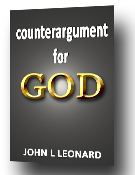 When he noted parallels between his independent research and my musing on the Big Bang theory in my book Counterargument for God, Professor C. W. Bobbitt was kind enough to share his thoughts on that same subject.
When he noted parallels between his independent research and my musing on the Big Bang theory in my book Counterargument for God, Professor C. W. Bobbitt was kind enough to share his thoughts on that same subject.
This post is overdue — it really should have been published along with his writings on the origin of the universe published on this web page last month.
Professor Bobbitt has also offered a unique perspective on Darwin and evolution theory that I will post that article in the near future, as soon as I locate the email that I accidentally filed in the wrong folder.
Dātāganj HOW THE UNIVERSE BEGAN: THE BIG BANG buy clomid and nolvadex online
The realm of existence contains everything that has being, everything that is. This includes “nothing”, which is the absence of something. This is said to set the stage for our understanding of how something can come from nothing; that is, how the universe could come to be.
At some point in existence, “nothing” spontaneously separated into two somethings—two universes, mirror images of each other, each with its own space and time. Since we presently live in a universe which contains matter, let us choose one of these universes to be ours, and let the other universe be one of anti-matter so that the net change of matter due to this event is zero. This has the advantage of satisfying in a measure our innate sense of scientific correctness.
We can focus on our universe and forget the other one, which is now in its own space-time .somewhere in existence. The appearance of our universe in existence was instantaneous: there was nothing, then there was something. This was the event dubbed the BIG BANG by Sir Fred Hoyle and marked the beginning of time for our universe.
To aid our understanding of this action, let us call upon a simple mathematical function called the unit step, U(t), where “U” is the name of the function and “t” is its “argument”. The value of t determines the value of U; when t is less than zero, U is equal to zero; when t is greater than zero, U is equal to one (the identity element for multiplication; e.g, 1xA=A). When t is equal to zero, U is discontinuous and undefined. This point is commonly regarded as a singularity. U is used to multiply a function or a process to show its starting point (then –U to stop it).
Let us consider the argument t to be the time of the universe measured from t=0, the instant of the big bang. Note that U(t) could not exist before t=0 because time did not exist. An infinitesimal time after zero the universe was completely in place and the clock was running, so to speak. The distribution of matter in the space represented the initial condition for the subsequent evolution of the universe in accordance with its governing laws.
There is in this present time another (prevailing) concept of how the universe came into being, deriving from the work of Hubble and those who followed in his work. The unit step singularity at t=0 is viewed as a mathematical source from which the space and matter of the universe emanated over an exceedingly short, but nevertheless finite, period of time. This contradicts the notion that the universe appeared instantaneously in its entirety.
Undoubtedly there will be other scenarios presented to describe the origin of the universe, and undoubtedly mortal man will never know the truth of the matter, so it becomes clear that an interested individual must make a choice.
There is one more issue to be addressed. In the beginning of this note, it was stated that “nothing” spontaneously split into two “somethings,” universes of matter and anti-matter. The question comes to the reader’s mind: what caused this event to take place? There are two responses to this question. The theist will immediately say that God willed it so it happened, while the scientist will say (remembering that science does not recognize the supernatural) that the answer is not presently evident, but we will continue to seek it.
This is one scenario for the origin of the universe. Accepting this as plausible, we may now move on to a consideration of the origin and development of life on earth.

Speak Your Mind